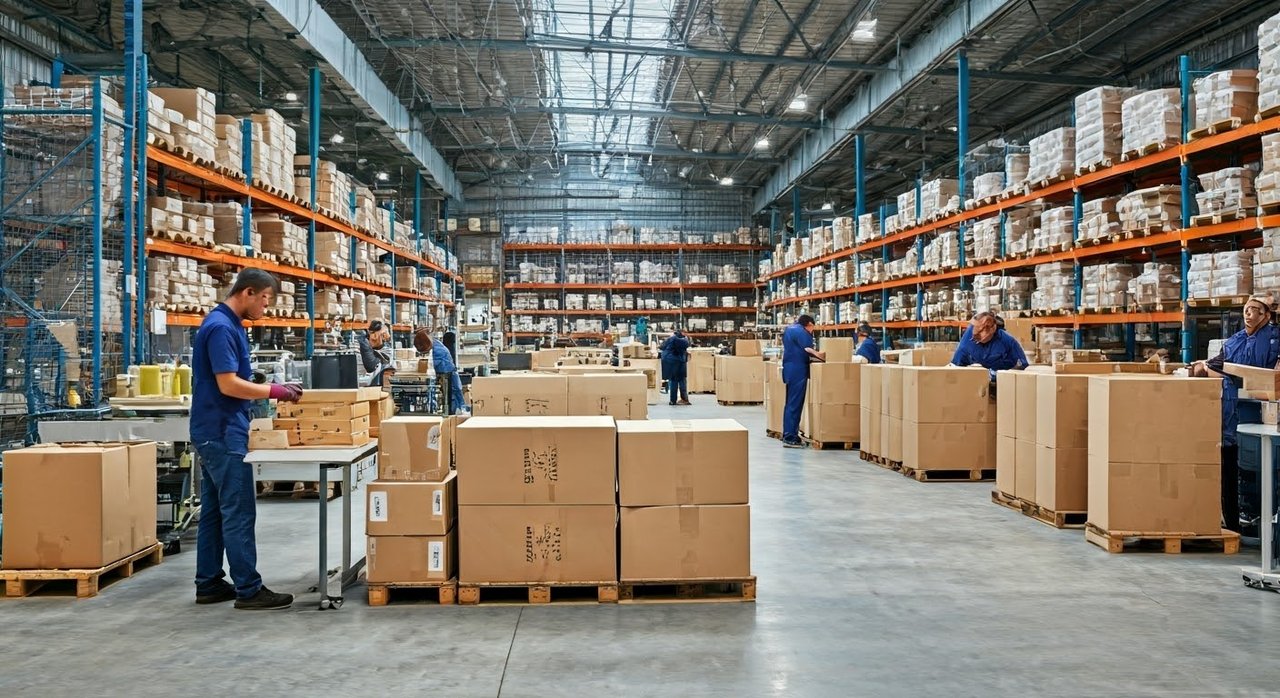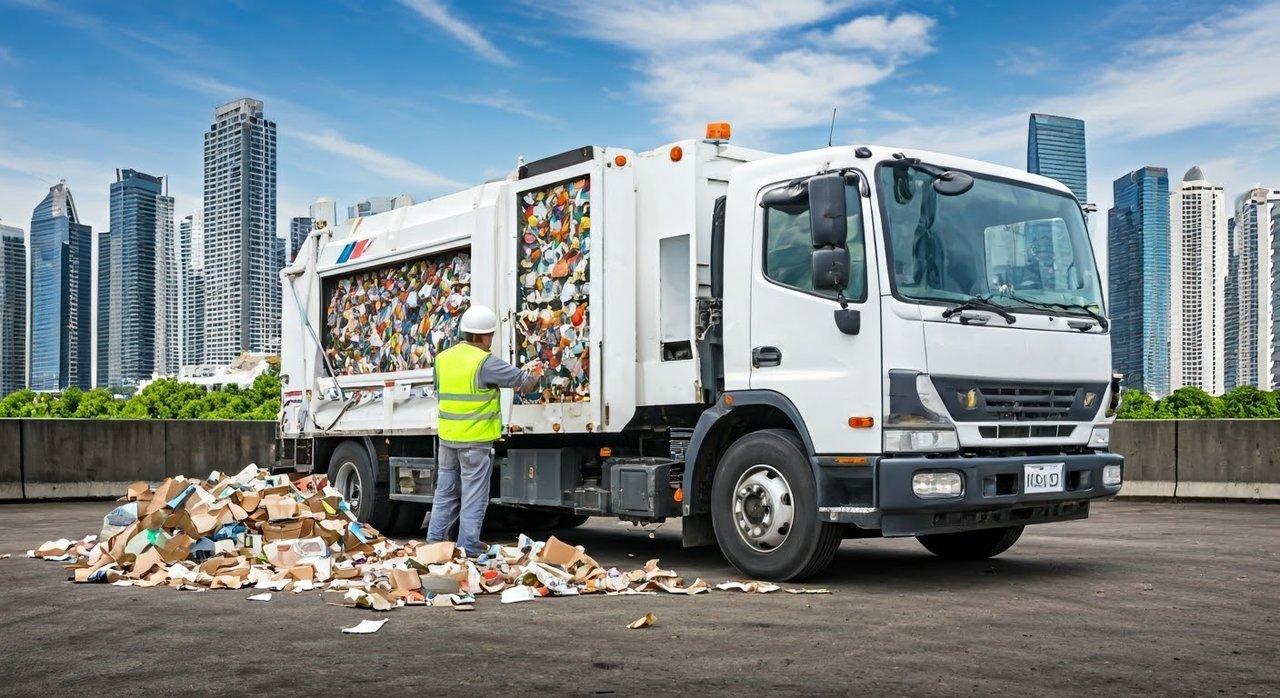On this page
The German Packaging Act (VerpackG) requires online retailers selling in Germany to register on the LUCID Packaging Register and participate in a dual system. The LUCID Packaging Register, managed by the Central Agency Packaging Register (ZSVR), ensures compliance with the VerpackG. Dual System Operators are private companies that collect, sort, and recycle packaging waste in Germany. Registration with LUCID is mandatory and failure to comply may result in penalties. Understanding different packaging types (disposable, reusable, sales, shipment) and their respective obligations is crucial for compliance and optimization. Choosing a suitable Dual System Operator requires careful consideration of your specific packaging needs and business operations.
The Recycling Problem
Germany has taken steps to reduce packaging waste and promote a circular economy with the Packaging Act (VerpackG). This law focuses on product responsibility. It requires manufacturers and online retailers to manage their product packaging from start to finish. They must ensure the packaging is disposed of properly and recycled. A key part of this law is the LUCID Packaging Register, which is maintained by the Central Agency Packaging Register (ZSVR) in German. After registering with LUCID, online retailers must choose a Dual System Operator and license all their packaging that they introduce to the German market. Dual System Operators are privately owned recycling companies, that take care of proper disposal and recycling of all private household waste in Germany.

Understanding the LUCID Packaging Register in Germany
The LUCID Packaging Register is part of the Zentrale Stelle Verpackungsregister (ZSVR). It is a main platform for businesses in the packaging supply chain to register. This registration process is required and is called System Participation. All companies, that introduce packaging to the German market, that will eventually end up in a private household, need to register with LUCID. This includes, online retailers like Amazon, eBay and Etsy, drop-shipping companies and fulfilment companies. LUCID is a public database that brings clarity and responsibility to the packaging industry. This allows both consumers and competitors to check if a company follows the VerpackG and report any issues.
When registering, companies must provide detailed information. This includes the types of packaging they use, how much they handle, and which dual system they picked for recycling. Keeping the information on LUCID accurate and updated is more than just following a process; it’s a legal requirement. Not following these rules can lead to serious penalties. These can be large fines, restrictions on sales, and damage to a company's reputation.
What are Dual System Operators?
Dual System Operators, are private companies approved by the German government. They take care of collecting, sorting, and recycling packaging waste. These operators follow the idea of extended producer responsibility. They work closely with cities and waste management groups to manage the recycling and disposal of packaging. This partnership helps lessen the responsibility on the public sector.

When businesses join a dual system and meet their obligation of system participation, they help pay for the recycling system. The fees they pay depend on how much and what kind of packaging they use. This system encourages businesses to reduce their packaging waste. It also pushes them to choose better packaging options and participate in recycling efforts to complete the cycle of packaging.
Packaging Types and Volumes
Disposable vs. Reusable!
Understanding the VerpackG can be tricky. You need to know the different types of packaging and what each type demands. This knowledge helps businesses follow the rules and improve their packaging methods. For most online retailers, using disposable packaging is a no-brainer. It could be wise to consider reusable packaging options, as they do not require registration with LUCID or licensing by a Dual System Operator. Demonstrating your company's commitment to responsibility and sustainability can be important to consumers.
It's not just about following rules. It's about making sustainable choices for your business. This means looking at the materials you use, checking how they affect the environment, and finding ways to cut down and reuse.

Disposable packaging - For Online Retailers
The primary aim should be to opt for reusable packaging whenever feasible. While we understand that this may not be practical for many online retailers, adopting reusable packaging would entail establishing a deposit system and managing the collection and cleaning of the packaging post-delivery. Consequently, the key focus should be on reducing packaging when possible initially, and then considering the material and composition of the packaging. The goal is to transition to eco-friendly packaging materials, such as paper and glass, that are easily recyclable. It is crucial to avoid mixed plastics at all times. Adhering to these basic guidelines can significantly impact recycling rates and saves you money in the long run.
Reusable Packaging - For Online Retailers
Reusable packaging, is gaining popularity in our contemporary society. The VerpackG aims to encourage businesses to consider their packaging choices and make the adoption of reusable packaging financially beneficial. When implemented effectively, reusable packaging does not need to be registered with the Dual System Operator. However, achieving successful reusability requires thorough planning and poses challenges, especially for online retailers.
Key considerations include:
- Which products can be sensibly shipped in reusable packaging?
- How can the collection, inspection, cleaning and distribution of reusable packaging be organized?
- Is there an existing deposit system that one can join?
An efficient reusable packaging system can reduce environmental impact and lead to cost savings in the long run.
Licensing with your Dual System Operator
Choosing the right Dual System Operator (DSO) is very important for effective compliance and smooth packaging waste management. Different DSOs have different strengths and special skills. They also offer various services.
Product Packaging
Product Packaging, known as "Produktverpackung," is categorized as systembeteiligungspflichtige Verpackungen, encompassing all materials that secure and safeguard the product purchased by consumers. This encompasses the primary packaging enclosing the items as well as any supplementary layers utilized for promotional or branding purposes. In Germany, manufacturers must register the packaging for products they produce, while online retailers importing products to Germany are obligated to secure licensing for the product packaging. It is recommended to obtain verification of the license from the manufacturer in both scenarios.
Shipment Packaging
Shipment packaging protects goods during delivery. It is also called transport or outer packaging. The main goal is to keep products safe when they move from the manufacturer or distributor to the final buyer or store. This type of packaging can include cardboard boxes, padded envelopes, air-filled cushions, and other materials that help secure items during transport. System participation applies to shipment packaging when it is packed at the distributor's site and sent straight to the buyer (as stated in the German Packaging Act, VerpackG). This makes the distributor responsible for its licensing. But if a retailer sends products to another company or a fulfilment centre in packaging that doesn't get to the end consumer, it may not need to follow Systembeteiligung. This depends on where the packaging ends up. It is a good idea to check a DSO's skills in handling shipment packaging logistics, especially for online businesses that ship often. Think about their tracking systems, data reporting tools, and how open they are in handling the recycling process.

Sales Packaging
Sales packaging is any packaging used at the point of sale. It usually holds several items together or makes it easier to carry them. Examples include the paper bag from a grocery store, the plastic bag from a clothing store, or trays for fruits and vegetables. Although this type of packaging is not the main source of product protection, its main purpose is to help with sales and consumer convenience. It is important to understand the details of the German Packaging Act. This catalog shows which packaging falls under the Act. It makes clear when sales packaging must follow Systembeteiligungspflicht. Not all sales packaging is included in the Act; the key factor is whether it reaches a private consumer.
Repackaging
Repackaging means taking a product out of its original box and putting it in a new one. This task might seem simple, but it has important rules under the German Packaging Act. If you are repackaging products and selling them for the first time in Germany, you become the "first distributor." As this distributor, you must follow the VerpackG rules. This includes signing up with the Zentrale Stelle (Central Agency) and meeting the Systembeteiligungspflicht requirements. The tricky part is figuring out who is in charge of packaging licenses. If the original package already meets the Systembeteiligungspflicht, then repackaging might not need more licenses. But if you add more packaging material for reasons like branding or protection, then you have to get a license for that extra packaging.
Implementation
Implementing the rules of the VerpackG can feel overwhelming. However, having a clear plan can make the process easier. It is not just about meeting requirements. It's also about adding sustainable practices to your business.

Example
Let's visualize this with an example. Imagine you are an online retailer selling handmade soaps and shipping them directly to consumers in Germany.
| Packaging Type | Description | Obligation |
|---|---|---|
| Product Packaging | Individually wrapped soap bars in biodegradable film. | Required to license with a DSO. Report the weight of the film used. Might come licensed from the manufacturer. Proof of license is needed. |
| Shipment Packaging | Cardboard boxes, paper padding, and paper tape used to ship orders. | Required to license with DSO. Report the weight of the boxes, padding, and tape. |
| Sales Packaging | None | N/A |
This table emphasizes the importance of categorizing your packaging accurately to understand your licensing obligations.
Selector tool
Our selector tool simplifies selecting the ideal Dual System Operator (DSO) for your business. Save time and make an informed decision tailored to your needs by considering the factors packaging type, volume and budget. Let our intuitive tool guide you effortlessly to the perfect DSO for your business goals.
Find the right DSO for your business
Conclusion
Implementing the LUCID Packaging Register and engaging with Dual System Operators is paramount for online retailers selling in Germany. Compliance with system participation obligations and the packaging act ensures environmental sustainability and product responsibility. By understanding the nuances of shipment, sales, and repackaging, retailers can efficiently navigate the complexities of packaging regulations. Embracing reusable packaging options alongside complying with disposal regulations fosters a circular economy approach. Ultimately, by prioritizing eco-friendly packaging practices, online retailers contribute to a more sustainable future and demonstrate corporate responsibility in the realm of packaging management. For help to license your packaging, connect with our experts today.






